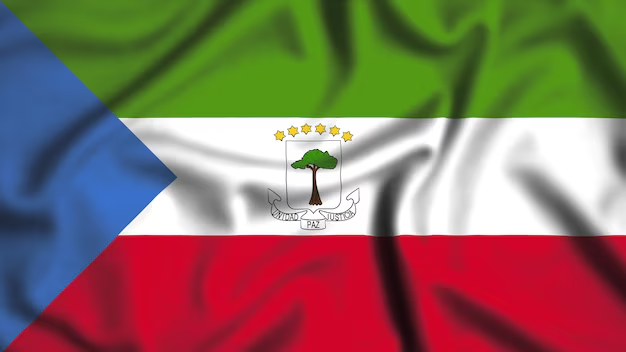In an increasingly digital financial world, heavily oil-dependent Equatorial Guinea—with a small but expanding digital profile—is forging new paths to economic inclusion. Now one of the most interesting trends is here: stablecoin payments in Equatorial Guinea to provide citizens and local businesses with constant and secure access to dollar value represented within blockchain systems. Since most of the country is difficult for banks to reach, the injective stablecoins (USDC, USDP & PYUSD) are a great alternative to facilitate secure, quick, and low-cost financial transactions.
Stablecoins and the Cryptocurrency Ecosystem in Equatorial Guinea
Despite its oil wealth, Equatorial Guinea is struggling with fiscal woes, and money does not flush easily in the country, where development is uneven and the financial system fragile. Internet penetration remains one of the lowest in the world, and the region is often referred to as a “digital desert.” Traditional financial services have been closed as a result of these limitations to many people.
But stablecoins — digital currencies pegged 1:1 to other assets, like the U.S. dollar — are stepping in to fill this void. The digital tokens are pegged to the value of the U.S. dollar and can be sent freely over open, blockchain-based networks, enabling residents to skirt the country’s expensive and lethargic banking system. Stablecoin platforms are making inroads into Equatorial Guinea, where the majority of the population are largely unbanked and underbanked- they don’t have access to credit, pre-cash and can’t easily access the US dollar from local banks.
Dollar Access Through Stablecoins
One of the biggest intended use cases for stablecoins is the accessibility of U.S. dollar value. The dollar is a widely accepted medium of exchange, trade, and savings in Equatorial Guinea. But exchanging local currency to dollars has traditionally been accompanied by high fees and delays. These frictions are greatly diminished with stablecoin solutions in emerging countries.
Stablecoin platforms such as USDC, USDP and PYUSD offer low-cost, real-time transfers. On smaller scales, blockchain networks including Solana and Ethereum, used domestically on platforms like Sling Money, enable users to traverse between digital dollars, with transaction settlement running as fast as 10–15 minutes. Speed is particularly important in a country where small transaction lags can be costly.
Also read: Stablecoin Payments in Mali: Digital Tools for Merchants and Gig Workers
Real-World Usage and Platform Support:
Attention to the Stablecoin’s use has increased even more, largely due to exchanges such as Bitget, which offer conditions for access to USDP and PYUSD with minimum orders starting at from $5. These platforms allow for cash-in and cash-out with card, bank wire, and mobile wallet payments, thereby facilitating expanded use of the digital dollar in Equatorial Guinea.
In addition, Bitget’s peer-to-peer (P2P) networks also feature more than 100 types of payment methods, enabling trading for stablecoins to allow those without a regular bank account to have access. Sling Money is a local service that allows Solana-native transfers of USDC and USDP for dependable, low-cost money transfer anywhere.
Product Integration: Smooth On-Ramps with TransFi
One promising solution targeting such regions is TransFi—a cross-border payment infrastructure platform for payments to Africa and beyond. TransFi provides a frictionless on-ramp and off-ramp for stablecoins such as USDC and USDT, allowing developers and fintech companies to embed digital dollar remittance capabilities into their applications. Multi-currency, user-friendly APIs have strong commercial applications for crypto remittances to Equatorial Guinea, quickening the onboarding process for unbanked customers while meeting KYC/AML standards worldwide.
Economic Benefits and Adoption Trends:
The importance of stablecoins for financial inclusion with crypto in Equatorial Guinea’s fragmented market Stablecoins are also becoming a key part of the financial inclusion conversation given that about 2 billion people remain bank-less. They allow:
- Gig workers and freelancers in India to get dollar payouts
- Small businesses to protect against exchange rate fluctuationaries
- Merchants, enabling them to accept payment while circumventing local banks and their fees.
Already, global studies indicate that 90% of financial institutions are integrating stablecoins to offer faster, more liquid payment options. There is limited evidence of UST and USDC adoption in Central Africa, but usage in neighbouring countries indicates significant regional traction.
Challenges to Stablecoin Adoption:
Although there are clear benefits, stablecoin payments adoption in Equatorial Guinea faces multiple obstacles:
- Regulatory Uncertainty: Local regulations governing virtual assets are still ambiguous. Equatorial Guinea lacks clear crypto regulations On the other hand, with global frameworks like the EU’secFallbackGENIUS Act (and others) giving the direction, Equatorial Guinea continues to sit on the fence with respect to its crypto regulations.
- Internet Infrastructure: Patchy broadband availability limits the number of people who can reliably use blockchain services.
- Operational Risks: As with other crypto assets, the irreversibility of transactions, and the potential of fraudulent activity, require strong user education and security.
- Fragmentation Ecosystem: Not all platforms hold multiple stablecoins, nor is there an easy integration for local wallet providers, restricting the usability of stablecoins for local commerce.
These demands require platforms to invest in strong compliance frameworks, multi-chain army knife ability, and educational advocacy for the users.
Also read: How a DeFi App Increased TVL by 40% After Adding TransFi for Stablecoin Access
The Road Ahead: A Dollarized Digital Future
With the development of the crypto infrastructure and increased regulatory clarity, Equatorial Guinea is likely to become an ideal location to benefit from the stablecoin-led financial evolution. Thanks to platforms like Bitget, Sling Money, and TransFi, access is broadening, and Equatorial Guinea’s unbanked can begin to rely more on crypto both on a consumer and business level.
Stablecoins provide a reliable anti-inflation hedge, easier remittance experience and is a foundation for smart-contract-based treasuries and operations. Over time, they could serve as the backbone of a decentralized, inclusive financial system in West and Central Africa.
Conclusion:
Stablecoins are revolutionizing access to U.S. dollar value in Equatorial Guinea, granting individuals and business a reliable, secure and lightning-fast alternative to traditional finance. While platforms such as Bitget, Sling Money and TransFi are reducing the barriers to entry, and while blockchain networks like Solana and Ethereum gain traction, stablecoins will be a linchpin of mainstream adoption for the unbanked in a market such as Equatorial Guinea.
The path forward includes regulation, education and infrastructure. But the potential is vast: from digital dollar remittances to stablecoins to hedge against inflation in West and Central Africa, these technologies see a chance to deliver on the promise of inclusive finance in one of Africa’s most neglected economies.
FAQs:
- How do stablecoins increase dollar access in Equatorial Guinea?
Stablecoins such as USDC and USDT allow users to transact in U.S. dollar-denominated equivalents, avoiding restrictions of local banks and with fast, low-cost transactions.
- Which platforms support stablecoins in Equatorial Guinea?
Bitget, Sling Money and TransFi And other platforms have been able to obtain stablecoin trading service through P2P trading, App transactions and other forms.
- Are stablecoin transactions safe in Equatorial Guinea?
Yes, but users should be cautious. Blockchain provides openness, but once the transactions are done, they’re done. The onboarding stage must be done on KYC compliant platforms with anti-fraud tools.
- Can I send stablecoins remittances to Equatorial Guinea?
Absolutely. Stablecoins are an emerging alternative for digital dollar remittances to Equatorial Guinea at a fraction of the cost and settlement time of traditional options.
- What are some of the obstacles associated with using stablecoins domestically?
Key challenges are low levels of internet penetration, ambiguous regulation and a lack of platform integration. Yet eventually, these issues have continued to be solved through better compliance and infrastructure.
Table of Contents
Suggested Article
Explore our products

Make global payments at the speed of a click

Accept payments, remove borders.

Unlock Seamless Digital Currency Transactions Anywhere
























